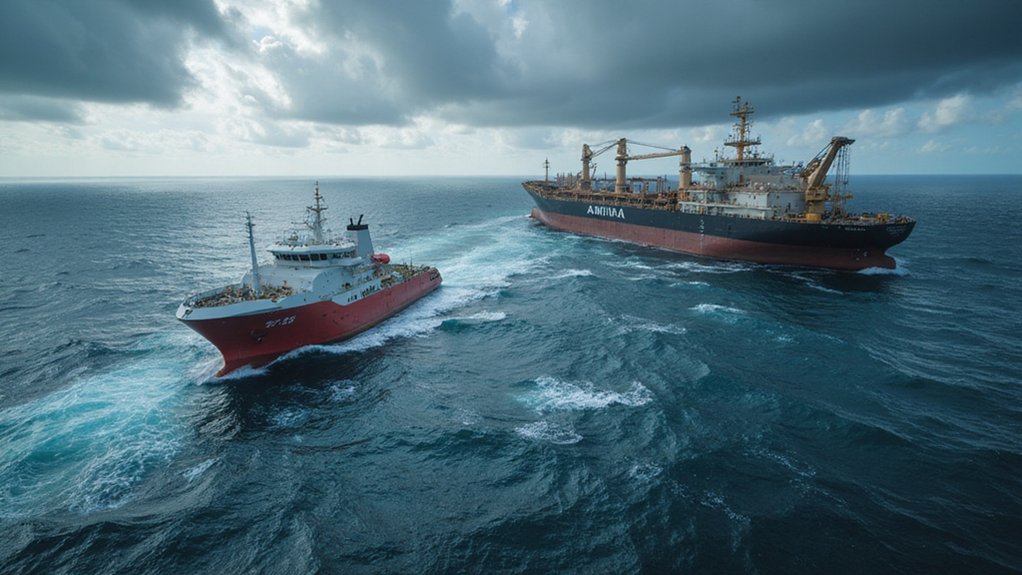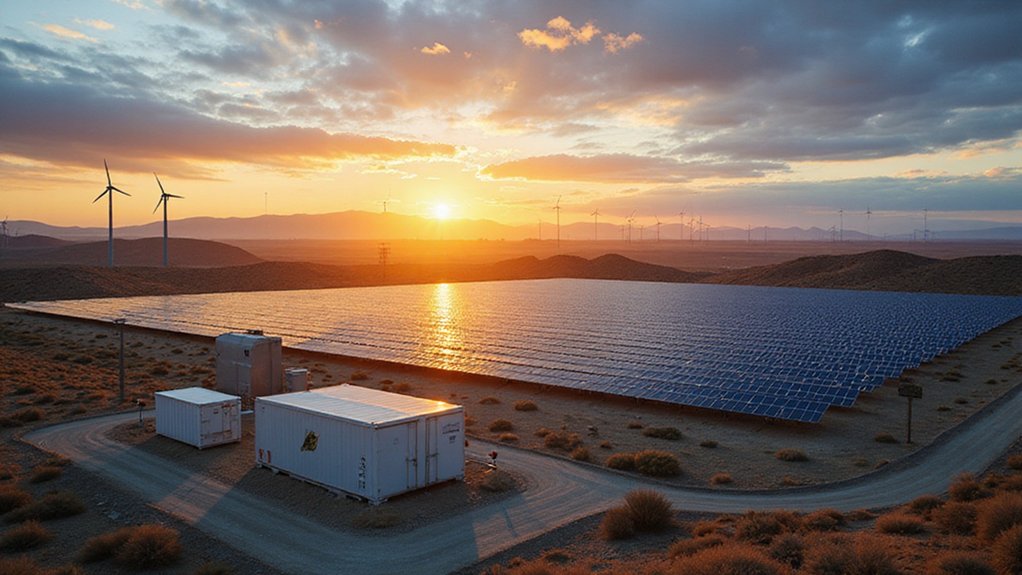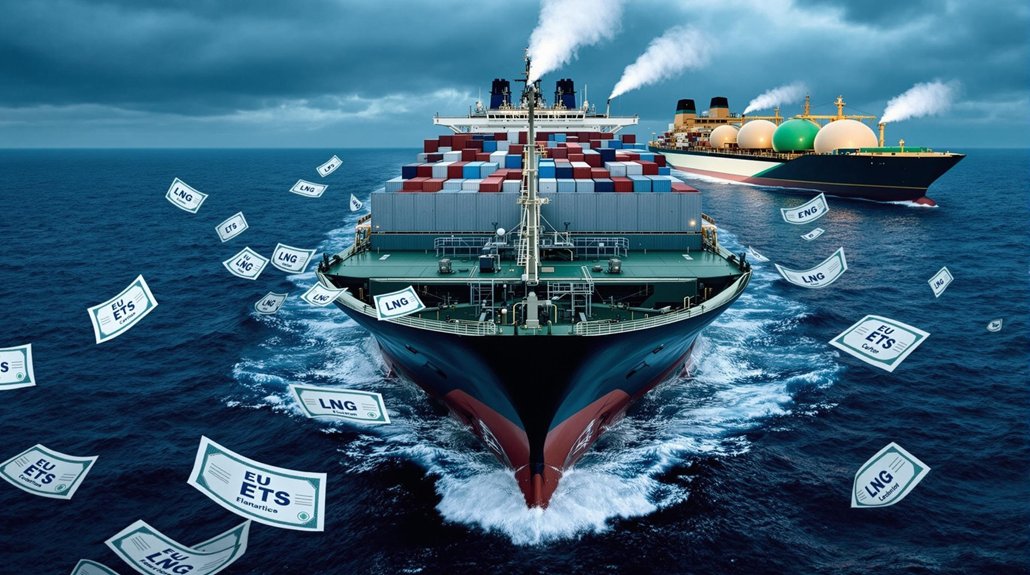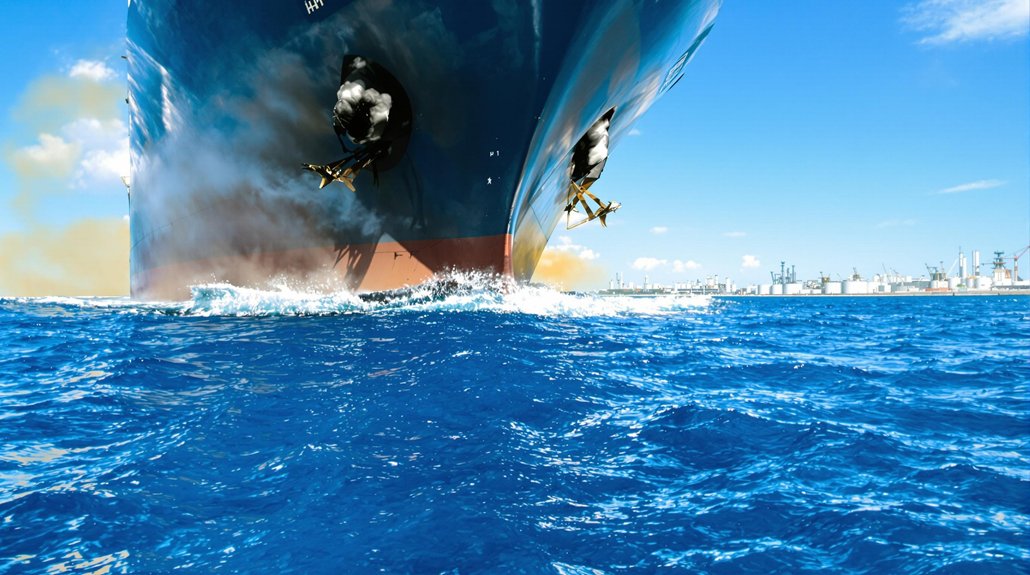China has blasted Trump’s executive order fast-tracking deep-sea mining as “lawless ocean theft.” Beijing claims the move violates international maritime law, specifically UNCLOS—which, ironically, the U.S. never ratified. The order aims to reduce American dependency on Chinese rare earth minerals, essential for tech and defense. Environmental groups aren’t thrilled either. The diplomatic spat highlights growing tensions over who controls valuable underwater resources. This oceanic grab could reshape global maritime politics.
China lashed out Thursday against former President Trump’s sweeping maritime executive order, calling it “lawless ocean theft” in an increasingly bitter dispute over deep-sea resources.
Beijing’s Foreign Ministry didn’t mince words, accusing the U.S. of flagrantly violating international law through its aggressive grab for undersea minerals.
Flagrant violation of global norms as America plunders ocean resources without international consent.
The executive order in question fast-tracks permits for deep-sea mining in U.S.-controlled waters. Pretty convenient timing, really. Trump’s administration framed it as crucial for securing rare earth minerals and strategic resources that China currently dominates. No surprise there.
Beijing’s response emphasized the need to respect the United Nations Convention on the Law of the Sea (UNCLOS). Funny how they’re suddenly huge fans of international frameworks. They warned the American action could escalate maritime disputes worldwide – rich coming from a country with its own controversial claims in the South China Sea.
The U.S. move has raised eyebrows globally. Multiple nations expressed concern about this unilateral action. The problem? The U.S. isn’t even a signatory to UNCLOS, making legal challenges complicated. Environmental groups are freaking out too, warning about damage to fragile deep-sea ecosystems.
It’s all about reducing dependency on Chinese-supplied minerals. The U.S. desperately needs these materials for technology and defense manufacturing. Can’t build those fancy iPhones without rare earths. This dependency is particularly concerning since China produced 70% of global supply in 2022 alone.
The executive order goes beyond mining. New financial penalties target shipping through Canadian and Mexican ports, forcing ocean carriers to rethink their routes. British Columbia ports are bracing for major financial hits.
Trump’s administration is also pushing allies to join in restricting Chinese maritime firms from Western supply chains. The new Office of Shipbuilding within the National Security Council will oversee these efforts to align trade restrictions with allies. They’re actively courting foreign investment in American shipyards, including a recent partnership between Hyundai and Huntington Ingalls.
The strategy creates an awkward tension. Hurting China economically might sound great until you realize it stings U.S. allies too. Classic Trump move – bold, controversial, and guaranteed to make waves. Literally.









